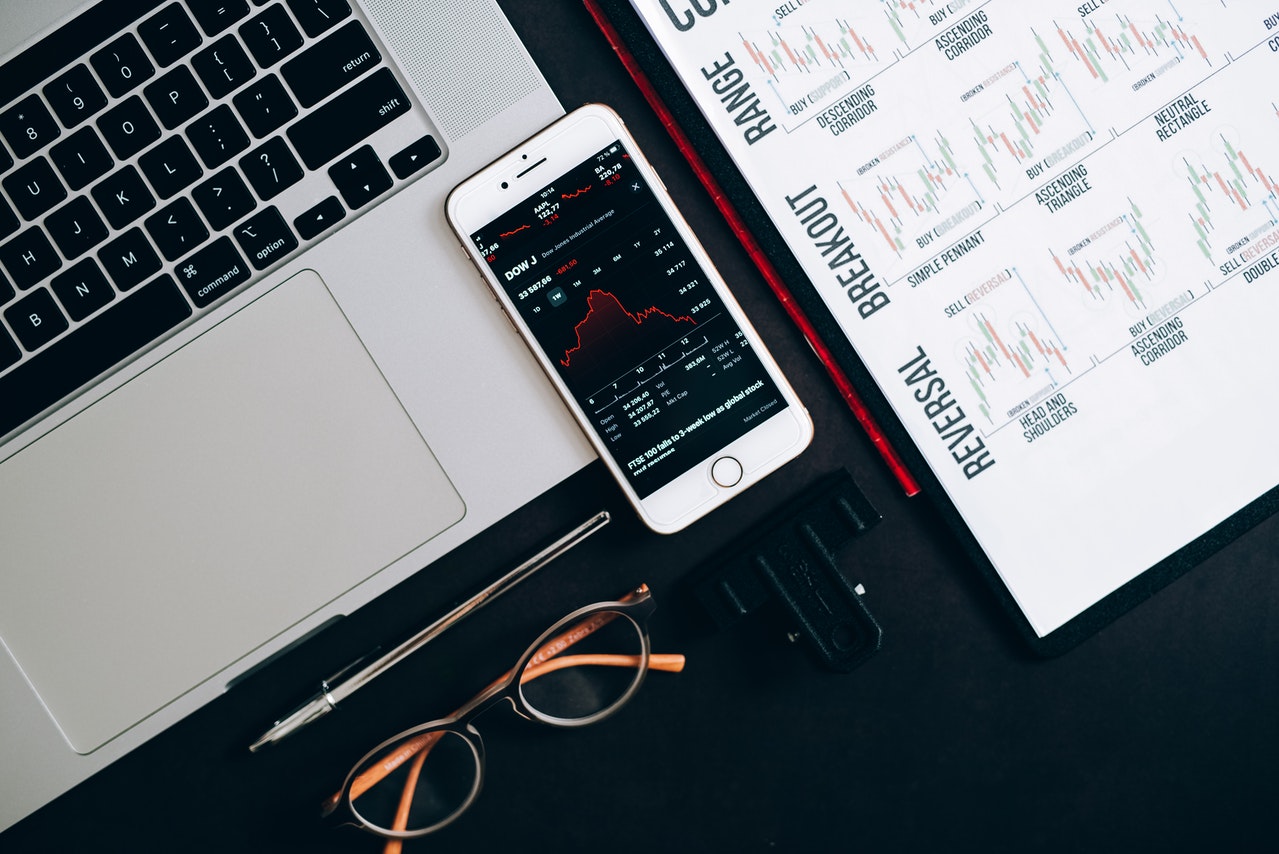Finance expert Dr. Kenneth Tah has advice for investors worried about the stock market’s latest decline: “Don’t panic.”
“When you panic, you tend to cash in your loss. There is always the need for endurance for a successful long-term investor,” said Dr. Tah, assistant professor of finance in the Stetson-Hatcher School of Business at Mercer University.
Investing in the stock market is a long game, he said, and history shows that eventually the market will rebound — we just don’t know when.
With stocks’ recent slide into a bear market — a term the investing world uses to describe a period of generally declining stock prices — uncertainty abounds. Dr. Tah recently talked to The Den about the current status of the stock market, how we got here, and what we might see in the future.
What is a bear market, and how long will it last?

A bear market occurs when the market closes more than 20% below its most recent high, Dr. Tah said. That happened on June 13 when the benchmark S&P 500 index closed 21.8% below its Jan. 3 peak.
This matters because as stock prices drop, so does the value of investors’ portfolios, including 401(k) retirement plans and other investments.
“If we think of people that were planning to go on retirement, that affects their ability to retire because if they do it immediately, they’ll be cashing in on the loss that they are experiencing in their portfolio because prices are going down,” Dr. Tah said.
Enduring the market’s volatility will be key for investors because the length of time it takes to recover could be quite a while, he said.
“Since the second World War, the U.S. has experienced about 14 bear markets, and when prices generally drop, on average, it takes about 23 months to go back to that spike,” he said. “The comeback could take a shorter period of time, but on average, it has been about 23 months.”
The bad news, he said, is that most bear markets have been followed by a recession; however, they are difficult to predict.
On the other side of a bear market is a bull market, a prolonged period of generally rising stock prices.
“The good news is that for all bear markets that we have ever experienced over the last century, every one of them was eventually accompanied by a longer and stronger bull market,” Dr. Tah said. “Things went back, and things were fine in every one of them. …
“The question is, how soon? Will things get worse before they get better, or will things get better very soon? That is what is difficult for us to know.”
How did the stock market get to this point?
A combination of negative events has led to the stock market’s decline, starting with the COVID-19 pandemic, Dr. Tah said.
In response to the pandemic, which forced many people out of work, the government pumped money into the system through multiple stimulus payments and lowered interest rates to help keep the economy going.
Meanwhile, the country began to suffer from a supply chain breakdown, which was spurred by the pandemic and impacted by other factors including natural disasters.
And “just when we’re thinking that things were bouncing back, the war in Ukraine really further complicated things,” Dr. Tah said.
Both Ukraine and Russia play a major role in global agriculture, and the inability to import food from either country has impacted availability and prices around the world. This has further impacted supply chains.
“We are in a time for which there’s a lot of money in the economy, which means that there is high demand, but the supply is just not there,” Dr. Tah said.
All of this has led to inflation, which the Federal Reserve — the central bank of the United States — is trying to combat by raising interest rates. And the market is responding negatively to this news.
Why is news about increased interest rates affecting the stock market?
The Fed is raising interest rates to take money out of the economy, which would lessen demand and help manage inflation, Dr. Tah said.
“If interest rates are high, people can buy bonds that are issued by the federal government because they want to capitalize on the high yield,” he said. “So, when they buy those bonds, they give money back to the federal government.
“That is a way to suck out money from the system, and it helps to reduce the high amount of money that we have in circulation.”
But the problem, he said, is that increased interest rates also mean that the cost of borrowing money is going up. Investors see this as bad news, Dr. Tah said.
“All of the rates are going to go up. Mortgage rates will go up. Credit card rates will go up. Car loans will go up. Even repayment of student loans will go up. So that is bad news,” he said. “And once the market perceives bad news, the market reacts negatively, so prices drop.
“So, that is why the market is reacting: because high interest rates are perceived by the market as bad news.”
On June 15, the Fed raised interest rates by three-quarters of a percentage point — the biggest increase since 1994.
“The Federal Reserve interest rate hike suggests they are taking an aggressive posture to fight inflation. It is expected that will cool off inflation,” Dr. Tah said. “There will be short-term volatility in the stock market, which we hope does not persist in the long run and drive the economy into a recession.”
If people can’t borrow money due to high interest rates, then companies can’t get money, and they can’t invest.
“That’s how it can lead to slowing down the economy, and we go into a recession,” he said.
What should the average investor do now?
It bears repeating: Don’t panic. And don’t stop investing in your 401(k) and other retirement plans. For the stock market to rebound, investors need to have confidence, Dr. Tah said.
“Endure. Don’t sell. If you sell, you cash your loss, so this is not the time to sell. The market is going to improve over time. If there is anything an investor can do it’s to continue to hold a diversified portfolio,” he said. “Instead of selling, it is advisable to buy because when you buy now you are buying at a discount.
“Yes, you will lose some money because prices are going down, but our investing is for the long run. Eventually, prices will go back up … and that will instead give you more benefit in the long run.”
Featured stock photo Olya Kobruseva










